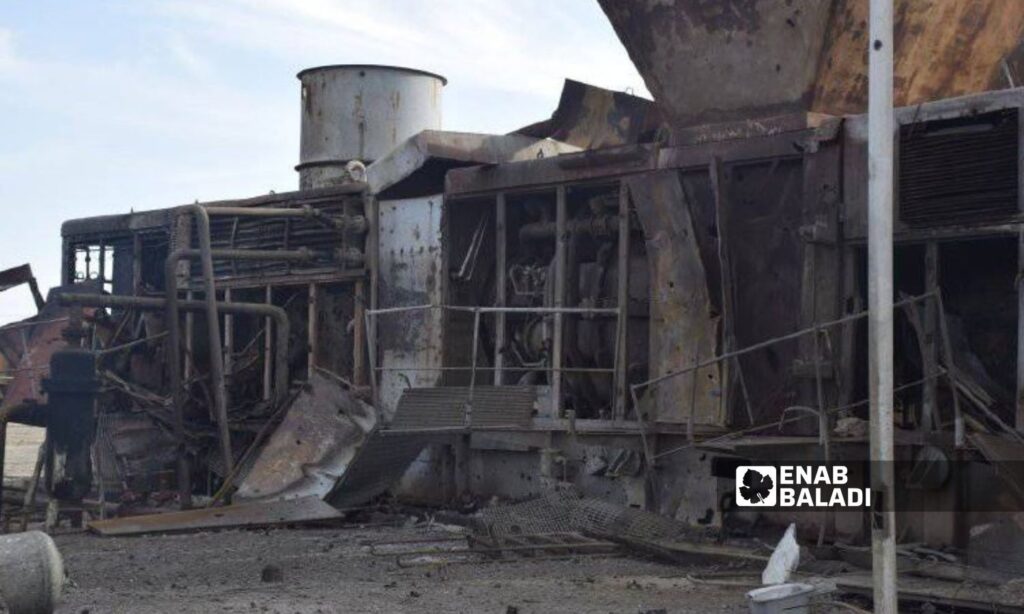The areas under the control of the Syrian Democratic Forces (SDF) in northeastern Syria are experiencing a severe fuel crisis in recent days as a result of the Turkish forces targeting of oil facilities in al-Hasakah governorate.
Enab Baladi’s correspondent in Qamishli reported today, January 18, that the city is devoid of diesel, gasoline, and gas.
She added that all oil stations are out of service in the Qamishli area.
Turkey has launched attacks on about 80 facilities in the past few days, including oil fields, military sites, infrastructure, companies, and commercial and industrial plants in areas controlled by the SDF.
Among the specifically targeted sites were the al-Suwaydiya gas plant and the Zarbah and Ouda oil stations as the Autonomous Administration of North and East Syria (AANES), the political cover of the SDF, announced that the al-Suwaydiya plant was 100% destroyed and out of service.
Enab Baladi’s correspondent reported that diesel sales stopped temporarily at fuel stations following these attacks, while the area is experiencing a sharp shortage in fuel supplies as a result.
Fuel station owners in Qamishli told Enab Baladi that they have not received their diesel and gasoline allocations for four days.
The electricity cuts caused water cuts in most neighborhoods of the city, where residents are forced to rely on water tankers, which, in turn, suffer from a shortage of supplies. Some small restaurant owners had to close due to the cuts in water, electricity, and gas.
The black market in the region saw an increase in the prices of diesel, kerosene, and gasoline, with the price per liter reaching more than 6000 Syrian pounds, due to the unavailability at gas stations.
Fuels are distributed according to cards issued by the Autonomous Administration through gas stations, and one liter is sold for 2,500 Syrian pounds, while free (unsubsidized) diesel is sold for 4,600 Syrian pounds per liter.
The US dollar is trading at 14,900 SYP according to the S-P Today website, which covers the trading rate of the Syrian pound to the dollar. At the start of the conflict in 2011, the dollar was trading at 47 pounds.
Ahmed Khadro, owner of a minibus on the al-Hizam line (one of the transport lines in Qamishli), told Enab Baladi that he bought diesel this morning at a price of 6,500 Syrian pounds per liter from the black market in order to operate his vehicle today. He indicated that he would be forced to suspend his vehicle’s operation if prices continue at their current level.
The prices of household gas also increased in the black market to more than 200,000 Syrian pounds with different weights and also in small quantities, according to what Enab Baladi’s correspondent in Qamishli observed.
On January 15, the Turkish Anadolu Agency quoted the Minister of Defense, Yaşar Güler, that the aerial operations of his country’s forces in northern Iraq and Syria resulted in the destruction of 78 targets consisting of caves, shelters, and oil facilities.
The attacks came after repeated attacks that resulted in the deaths of Turkish soldiers in northern Iraq, which the Kurdistan Workers’ Party (PKK) is accused of carrying out.
Turkey considers the SDF an extension of the PKK, and despite the SDF’s denial, it acknowledges that there are fighters under its banner who belong to the Kurdistan Workers’ Party and have held leadership positions.











